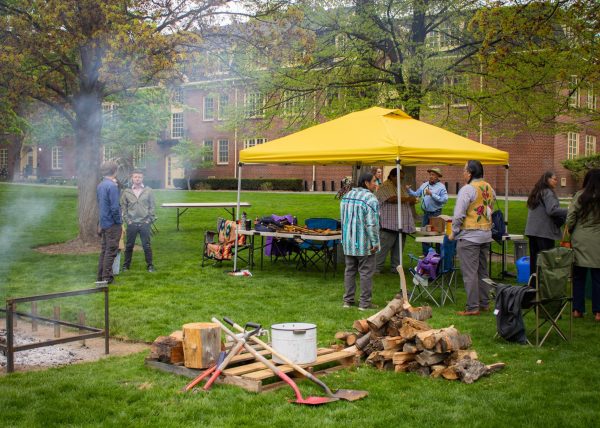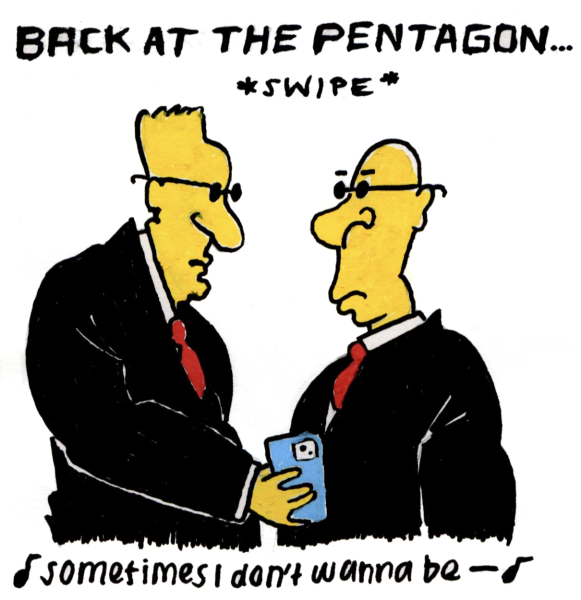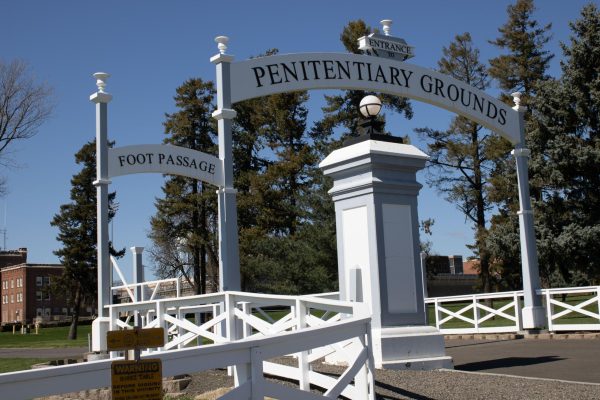Whitman’s Plans for Active Shooter Scenario
October 22, 2015
Due to the five campus shootings that have taken place in the nation in the last month, Whitman’s administration and security staff, as well as the local law enforcement, have tentative plans to make the Whitman community more aware of what to do and where to go in an active shooter scenario.
Whitman Security has primarily used the Shots Fired On Campus video to educate incoming first-years on the courses of action to take during an active shooting situation. The first incoming class to see this video was the class of 2017.
“Theoretically, three-quarters of the students should have seen that film,” Dean of Students Chuck Cleveland said.
Often, Whitman students will come in with some prior knowledge from high school about what to do in an active shooting situation as well.
“We’re also finding that many students have been through training exercises in high school,” Cleveland said.
Some additional resources include the Whitman Environmental Health and Safety website and the emergency notification system available via text. If Whitman students wish to review what courses of action they should take in an active shooting scenario, the Whitman Environmental Health and Safety website has detailed information about this topic on its website.
“Whitman College has a brand new website available to faculty, staff, and students. The very first thing on that website is what to do in the case of an active shooter,” Environmental Health and Safety Manager Fred Miller said.
Furthermore, Whitman has an emergency notification system that is available to all students. Miller strongly suggests students enter their phone numbers and those of their emergency contacts on the website Quack to receive emergency texts.
“[The text] essentially goes out with the urgency of—or even greater urgency than—an Amber alert. The entire campus gets notified in about two minutes,” Miller said.
While all of these measures provide a good starting point, one idea that the Walla Walla Police Department would like to explore is doing active shooter drills with students and faculty; however, both the Whitman administration and the Police recognize that these would be hard to do without interfering with classes.
“Are faculty, staff, and students willing to have a minimum of a half-day interrupted for an active shooting exercise? We’re getting some more questions and there seems to be a willingness to learn more, so we’re working with Whitman faculty groups,” Cleveland said.
A campus-wide drill may be difficult to implement, but according to Walla Walla Police Captain Chris Buttice, splitting the drill up into smaller segments could be more feasible.
“I think we should work on doing drills. If you picked a small building and you did a little at a time, worked with all the instructors in the building, even then it is going to be disruptive, a small plan is better than no plan though,” Captain Buttice said.
When a shooter arrives on campus, the general advice is first to run away and then hide silently. Only if there is no other option should one confront the shooter.
“If you know where the shots are coming from and you can safely run as far away from them as you can, I would say take that action. If you don’t know where the shots are coming from, I would say securely hide yourself somewhere, lock the door, close the blinds, be extremely quiet. If the only thing left to do is fight, if you are in the cross hairs of this shooter it is likely that you would get injured or killed, I would fight,” Walla Walla Police Chief Scott Bieber said.
Buttice also wanted the Whitman community to know the importance of alertness and planning.
“First thing [you should do] when you walk into a room—where are your exits? It’s a really tough thing because we don’t operate under those means all the time, but students in today’s classrooms should at least think about that once or twice: what am I going to do and what’s my response going to be?” said Captain Buttice.
Cleveland believes that table-top exercises, simulations where security and law enforcement officers brainstorm and practice different responses to various, and hypothetical active shooting scenarios, have made local law enforcement and emergency responders well-prepared to support Whitman should an active shooting situation arise.
“When we do our table-top exercises, it often involves the police and emergency people from the community and the county, so it’s not like Whitman running around and pretending, it’s a very serious effort and it can feel very real actually,” said Cleveland.
Though it is good to have a personal idea of what one would do in an active shooting scenario as well as have a campus-wide coordinated effort to keep Whitman community members safe, the best option is to help prevent the shooting if at all possible. The Dean of Students Office and the Counseling Center encourage students to notify them if they know of anyone showing signs of disturbing or explosive behavior.
“If you know of a student who is experiencing difficulties, psychological difficulties, expresses anger, you as an individual are probably not the best person to get involved. You need to bring that person to the attention of the Dean of Student’s Office or the Health Center and let us reach out,” Cleveland said.








